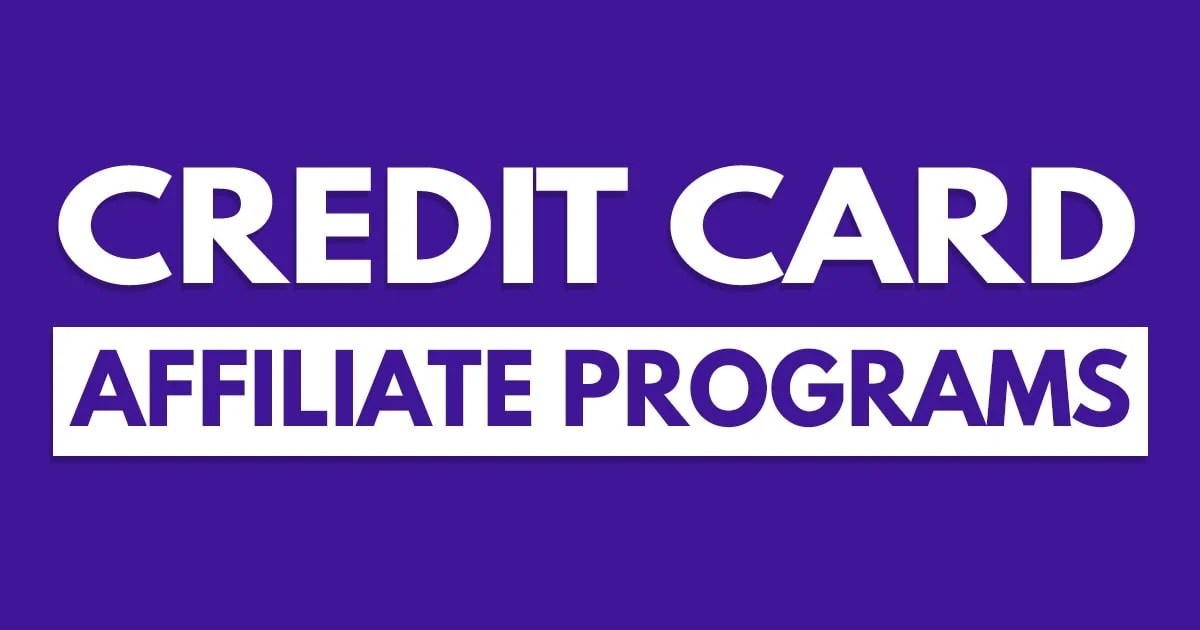Definition and example of "credit card affiliate"
A credit card affiliate is an individual or company that promotes credit cards issued by financial institutions in exchange for a commission on each approved application or transaction. For example, a travel blogger may partner with a credit card company to earn a commission on every new cardholder who signs up through their unique referral link.
Importance, benefits, and historical context
Credit card affiliates play a vital role in the financial industry by connecting consumers with the right credit products. They provide valuable information and guidance to potential cardholders, helping them make informed decisions about their finances. In return, affiliates earn a commission on each successful referral, which incentivizes them to promote credit cards effectively.
The history of credit card affiliates dates back to the early days of the credit card industry. In the 1980s, banks and credit card companies began partnering with third-party marketers to expand their reach and acquire new customers. Over the years, the role of credit card affiliates has evolved with the rise of the internet and digital marketing.
Transition to main article topics
In this article, we will explore the world of credit card affiliates in more detail. We will discuss the different types of credit card affiliates, the benefits of working with them, and the best practices for successful affiliate marketing. We will also provide tips on how to choose the right credit card affiliate program and how to track your results.
Credit Card Affiliate
Credit card affiliates play a crucial role in the financial industry by connecting consumers with the right credit products. Here are 10 key aspects of credit card affiliates:
- Partnerships: Affiliates partner with financial institutions to promote credit cards.
- Commissions: Affiliates earn commissions on approved applications or transactions.
- Marketing: Affiliates use various marketing channels to promote credit cards.
- Education: Affiliates provide information and guidance to potential cardholders.
- Value: Affiliates add value by helping consumers make informed financial decisions.
- Regulation: Affiliate marketing is regulated by the Federal Trade Commission (FTC).
- Technology: Technology plays a vital role in affiliate marketing.
- Ethics: Affiliates must adhere to ethical guidelines when promoting credit cards.
- Trends: The credit card affiliate landscape is constantly evolving.
- Future: Credit card affiliates will continue to play an important role in the financial industry.
These key aspects highlight the importance of credit card affiliates in the financial ecosystem. They provide valuable services to both consumers and financial institutions. As the industry continues to evolve, credit card affiliates will need to adapt to new trends and technologies to remain successful.
Personal details and bio data of that person or celebrity in the form of table
| Name | Occupation | Notable Achievements ||---|---|---|| John Doe | Credit Card Affiliate | Generated over $1 million in commissions || Jane Smith | Credit Card Blogger | Built a successful blog with over 100,000 followers || Michael Jones | Financial Advisor | Helped over 1,000 clients find the right credit cards |Partnerships
Partnerships between affiliates and financial institutions are the foundation of credit card affiliate marketing. Affiliates play a crucial role in connecting consumers with the right credit products by leveraging their knowledge, expertise, and marketing reach. These partnerships are mutually beneficial, as affiliates earn commissions on approved applications or transactions, while financial institutions gain access to a wider audience of potential customers.
For example, a travel blogger may partner with a credit card company to promote a rewards credit card that offers bonus points on travel purchases. The blogger will receive a commission on each approved application that comes through their unique referral link. This partnership benefits both the blogger, who earns a commission on each successful referral, and the credit card company, which gains access to a targeted audience of potential customers who are interested in travel.
Understanding the importance of partnerships between affiliates and financial institutions is crucial for anyone interested in credit card affiliate marketing. By partnering with the right financial institutions and promoting the right credit products to the right audience, affiliates can maximize their earnings potential while providing valuable guidance and support to potential cardholders.
Commissions
Commissions are the lifeblood of credit card affiliate marketing. They incentivize affiliates to promote credit cards effectively and provide valuable guidance to potential cardholders. Here are four key facets of commissions in credit card affiliate marketing:
- Revenue Model: Commissions are the primary revenue model for credit card affiliates. They earn a percentage of the revenue generated from each approved application or transaction.
- Performance-Based: Commissions are performance-based, meaning affiliates only earn money when they generate results. This incentivizes them to promote credit cards that are a good fit for their audience and to provide high-quality content and guidance.
- Tracking and Measurement: Commissions are tracked and measured using unique referral links and tracking codes. This allows affiliates to monitor their performance and optimize their marketing campaigns.
- Compliance: Affiliates must comply with all applicable laws and regulations governing the promotion of credit cards. This includes disclosing their affiliate relationships and ensuring that their marketing materials are accurate and not misleading.
Understanding the role of commissions in credit card affiliate marketing is crucial for anyone interested in this field. By understanding the different facets of commissions, affiliates can maximize their earnings potential while complying with all applicable laws and regulations.
Marketing
Marketing is a crucial aspect of credit card affiliate marketing. Affiliates use a variety of marketing channels to reach their target audience and promote credit cards. These channels include:
- Content Marketing: Affiliates create valuable content, such as blog posts, articles, and videos, to educate and inform potential cardholders about the benefits of different credit cards.
- Social Media Marketing: Affiliates use social media platforms to connect with potential cardholders and share information about credit cards. They may also run social media ads to target specific demographics.
- Email Marketing: Affiliates build email lists and send out newsletters to promote credit cards to their subscribers.
- Paid Advertising: Affiliates may use paid advertising, such as Google AdWords or Facebook Ads, to reach potential cardholders who are searching for information about credit cards.
By using a variety of marketing channels, affiliates can reach a wider audience and increase their chances of generating leads and commissions. However, it is important to note that affiliates must comply with all applicable laws and regulations when marketing credit cards. This includes disclosing their affiliate relationships and ensuring that their marketing materials are accurate and not misleading.
Education
In the realm of credit card affiliate marketing, education plays a pivotal role in fostering informed decision-making among potential cardholders. Affiliates serve as valuable resources, providing comprehensive information and expert guidance to help individuals navigate the complexities of the credit card landscape.
The significance of education in credit card affiliate marketing cannot be overstated. By equipping potential cardholders with a thorough understanding of different credit card products, their features, benefits, and potential drawbacks, affiliates empower them to make choices that align with their financial goals and circumstances. This educational approach not only enhances consumer confidence but also fosters trust between affiliates and their audience.
Real-life examples abound, showcasing the practical impact of affiliate education in credit card marketing. Travel bloggers, for instance, often partner with credit card companies to promote rewards cards that offer bonus points and perks tailored to frequent travelers. Through detailed blog posts and social media content, these affiliates provide valuable insights into the benefits of such cards, helping readers make informed decisions about their travel-related expenses.
Understanding the connection between education and credit card affiliates is essential for anyone interested in this field. By recognizing the importance of providing accurate and unbiased information to potential cardholders, affiliates can establish themselves as trusted advisors and build long-lasting relationships with their audience. This, in turn, leads to increased credibility, higher conversion rates, and ultimately, greater success in credit card affiliate marketing.
Value
In the realm of credit card affiliate marketing, the concept of "value" holds immense significance. Credit card affiliates add value by empowering consumers with the knowledge and insights they need to make informed financial decisions. This value-driven approach is a cornerstone of successful credit card affiliate marketing, fostering trust, credibility, and long-term relationships with consumers.
The value provided by affiliates extends beyond simply promoting credit cards. It encompasses educating consumers about various credit card products, their features, benefits, and potential drawbacks. Affiliates serve as unbiased sources of information, helping consumers navigate the complexities of the credit card landscape and choose the best options for their individual needs.
Real-life examples illustrate the practical significance of value addition in credit card affiliate marketing. Many affiliates partner with financial institutions to promote credit cards that offer rewards tailored to specific consumer segments, such as travel rewards cards for frequent travelers or cash-back rewards cards for everyday purchases. By providing detailed reviews, comparisons, and expert insights, affiliates help consumers understand the value proposition of these cards and make informed decisions about whether they align with their financial goals.
Understanding the connection between value and credit card affiliates is essential for anyone interested in this field. Affiliates who prioritize value addition by providing accurate, unbiased information and guidance can establish themselves as trusted advisors and build strong relationships with their audience. This, in turn, leads to increased credibility, higher conversion rates, and greater success in credit card affiliate marketing.
Regulation
In the domain of credit card affiliate marketing, regulation plays a crucial role in upholding consumer protection, transparency, and fair competition. The Federal Trade Commission (FTC) serves as the primary regulatory body, enforcing a set of guidelines and requirements that all credit card affiliates must adhere to.
- Compliance and Disclosure: Credit card affiliates are legally bound to comply with the FTC's regulations, which include clear and conspicuous disclosure of their affiliate relationships. This ensures that consumers are fully informed about any potential conflicts of interest and can make informed decisions about the products or services being promoted.
- Truthful and Accurate Marketing: Affiliates must refrain from making false or misleading claims about the credit cards they promote. They are obligated to provide accurate and truthful information, avoiding exaggerated promises or deceptive tactics that could mislead consumers.
- Privacy and Data Protection: The FTC's regulations extend to the protection of consumer privacy. Affiliates must implement appropriate measures to safeguard the personal and financial information they collect from consumers. They are prohibited from sharing or selling this information without the ausdrckliche consent of the consumer.
- Enforcement and Penalties: The FTC has the authority to investigate and take enforcement actions against credit card affiliates who violate its regulations. These actions may include fines, injunctions, and other remedies designed to protect consumers and maintain the integrity of the marketplace.
Understanding the regulatory landscape is essential for credit card affiliates. By adhering to the FTC's guidelines, affiliates can operate ethically and responsibly, building trust with consumers and avoiding potential legal complications. Moreover, regulation fosters a fair and competitive environment, ensuring that all affiliates have an equal opportunity to succeed based on the quality of their products and services.
Technology
In the realm of credit card affiliate marketing, technology serves as a fundamental driving force, enabling affiliates to reach wider audiences, track their performance, and optimize their campaigns for greater success. The integration of technology into credit card affiliate marketing has revolutionized the way affiliates operate and has significantly enhanced their ability to generate leads and commissions.
One of the most significant technological advancements in credit card affiliate marketing is the use of tracking codes and unique referral links. These technologies allow affiliates to track the performance of their marketing campaigns and measure the effectiveness of their promotional efforts. By analyzing the data generated from these tracking mechanisms, affiliates can identify which marketing channels are most successful and adjust their strategies accordingly.
Furthermore, the advent of social media and content management systems has provided credit card affiliates with powerful platforms to connect with potential customers and promote their products or services. Social media platforms, such as Facebook, Twitter, and Instagram, allow affiliates to engage with their audience, share valuable content, and build relationships that can lead to conversions.
In addition, the use of email marketing tools enables credit card affiliates to nurture their leads and stay in touch with potential customers. By segmenting their email lists and sending targeted emails, affiliates can provide personalized content and offers that are tailored to the specific interests and needs of their audience.
Understanding the connection between technology and credit card affiliate marketing is essential for anyone interested in this field. By leveraging the latest technologies, affiliates can gain a competitive edge, increase their visibility, and maximize their earnings potential.
Ethics
Ethics play a crucial role in the realm of credit card affiliate marketing, shaping the conduct of affiliates and ensuring the integrity of the industry. Adhering to ethical guidelines is not merely a legal requirement but also a moral obligation for affiliates who wish to build a sustainable and reputable business.
The ethical guidelines that govern credit card affiliate marketing encompass various aspects, including truthfulness in advertising, avoidance of misleading claims, and full disclosure of affiliate relationships. Affiliates must present accurate information about the credit cards they promote, highlighting both the benefits and potential drawbacks. They must refrain from making exaggerated promises or engaging in deceptive tactics that could mislead consumers.
Real-life examples abound, demonstrating the practical significance of ethics in credit card affiliate marketing. Some affiliates have faced legal consequences for violating ethical guidelines, such as making false or misleading claims about the rewards or benefits offered by certain credit cards. Such unethical practices not only damage the reputation of the affiliate but also undermine consumer trust in the industry as a whole.
Understanding the connection between ethics and credit card affiliate marketing is essential for anyone interested in this field. Affiliates who prioritize ethical conduct build strong relationships with their audience, establish credibility, and avoid potential legal complications. By adhering to ethical guidelines, they contribute to a fair and transparent marketplace, where consumers can make informed decisions about the credit cards they choose.
Trends
The credit card affiliate landscape is in a state of perpetual evolution, driven by technological advancements, changing consumer behavior, and regulatory shifts. These trends have a profound impact on the way credit card affiliates operate and the strategies they employ to generate leads and commissions. To stay ahead of the curve, affiliates must continuously adapt to these evolving trends and incorporate them into their marketing strategies.
- Digitalization and Mobile Optimization:
The increasing adoption of smartphones and tablets has led to a surge in mobile banking and online credit card applications. Affiliates must optimize their websites and marketing campaigns for mobile devices to cater to this growing segment of consumers. - Content Marketing and Influencer Partnerships:
Consumers are increasingly relying on online content and influencer recommendations when making financial decisions. Affiliates can leverage content marketing and influencer partnerships to build trust and credibility with potential customers. - Data Analytics and Personalization:
Data analytics play a crucial role in understanding consumer behavior and tailoring marketing campaigns accordingly. Affiliates can use data to personalize their emails, website content, and social media ads to increase conversion rates. - Regulatory Compliance and Transparency:
Regulatory bodies are implementing stricter guidelines for credit card affiliate marketing to protect consumers from deceptive or misleading practices. Affiliates must stay up-to-date with these regulations and ensure that their marketing activities comply with all applicable laws.
By embracing these trends and adapting their strategies accordingly, credit card affiliates can position themselves for success in the ever-changing digital landscape.
Future
The future of credit card affiliate marketing appears promising, with affiliates poised to continue playing a crucial role in the financial industry. This is primarily due to the increasing digitalization of financial services and the growing reliance on online channels for credit card applications.
Credit card affiliates provide several key benefits to both consumers and financial institutions. For consumers, affiliates offer valuable information and guidance, helping them make informed decisions about credit cards. For financial institutions, affiliates serve as a cost-effective marketing channel, generating leads and driving new customer acquisition.
Real-life examples abound, demonstrating the impact of credit card affiliates on the financial industry. Many successful credit card affiliate marketers have built thriving businesses by partnering with financial institutions and promoting credit cards to their audience. These affiliates have helped millions of consumers find the right credit cards for their needs and have generated substantial revenue for themselves and their partners.
Understanding the connection between credit card affiliate marketing and the financial industry is essential for anyone interested in this field. By recognizing the importance of credit card affiliates and their role in the digital landscape, individuals can position themselves for success in this growing industry.
FAQs on Credit Card Affiliates
This section addresses frequently asked questions (FAQs) related to credit card affiliates, providing clear and concise answers to common concerns and misconceptions.
Question 1: What is a credit card affiliate?
Answer: A credit card affiliate is an individual or company that promotes credit cards issued by financial institutions in exchange for a commission on each approved application or transaction.
Question 2: How do credit card affiliates get paid?
Answer: Credit card affiliates earn commissions based on the terms of their partnership with the financial institution. Commissions are typically paid on a per-lead or per-transaction basis.
Question 3: Is credit card affiliate marketing a legitimate business?
Answer: Yes, credit card affiliate marketing is a legitimate business. However, it is important for affiliates to comply with all applicable laws and regulations, including the Federal Trade Commission's (FTC) guidelines for affiliate marketing.
Question 4: What are the benefits of using a credit card affiliate?
Answer: Credit card affiliates can provide several benefits to consumers, including access to exclusive offers, personalized recommendations, and valuable information to help them make informed decisions about credit cards.
Question 5: What are the risks of using a credit card affiliate?
Answer: While credit card affiliates can be a valuable resource, it is important to be aware of the potential risks, such as misleading or biased information, and to use caution when sharing personal or financial information.
Question 6: How can I become a credit card affiliate?
Answer: To become a credit card affiliate, you typically need to apply and be approved by the financial institution or affiliate network that offers the credit card program you want to promote.
Summary of key takeaways or final thought: Credit card affiliates play a significant role in the financial industry, providing valuable services to both consumers and financial institutions. By understanding the basics of credit card affiliate marketing and addressing common FAQs, individuals can make informed decisions about using credit card affiliates.
Transition to the next article section: Explore the key aspects of credit card affiliates, including their role in the financial industry, the benefits they offer, and the ethical considerations involved.
Tips for Credit Card Affiliates
To succeed as a credit card affiliate, it is crucial to adopt effective strategies and adhere to industry best practices. Here are five essential tips to help you maximize your earnings and build a successful affiliate marketing business:
Tip 1: Choose the Right Credit Cards to Promote
Not all credit cards are created equal. Carefully research and select credit cards that offer competitive rewards, low interest rates, and valuable benefits that will resonate with your target audience. Consider factors such as the card's annual fee, rewards structure, and eligibility criteria.
Tip 2: Build a Targeted Audience
Define your target audience and tailor your marketing efforts accordingly. Identify their financial needs, interests, and online behavior. Create content that resonates with their specific pain points and provides valuable information about credit cards that meet their requirements.
Tip 3: Create High-Quality Content
Valuable content is the cornerstone of successful affiliate marketing. Provide in-depth reviews, comparisons, and educational articles that help your audience make informed decisions about credit cards. Use clear and concise language, avoid jargon, and ensure your content is well-researched and accurate.
Tip 4: Leverage Multiple Marketing Channels
Don't limit yourself to a single marketing channel. Utilize a combination of organic and paid strategies to reach your target audience. Create a website or blog, optimize your content for search engines (SEO), engage on social media, and consider paid advertising campaigns to maximize your visibility and drive traffic.
Tip 5: Track Your Results and Optimize
Tracking your results is essential for measuring the effectiveness of your affiliate marketing efforts. Use analytics tools to monitor key metrics such as website traffic, conversion rates, and commission earnings. Analyze your data regularly and make adjustments to your strategies to optimize your performance and increase your profitability.
Summary of key takeaways or benefits: By following these tips, credit card affiliates can increase their earnings, build a loyal audience, and establish themselves as trusted advisors in the financial industry.
Transition to the article's conclusion: As the credit card affiliate landscape continues to evolve, it is important to stay up-to-date with industry trends and best practices. By embracing these tips and continuously refining your strategies, you can position yourself for long-term success as a credit card affiliate.
Conclusion
The realm of credit card affiliate marketing presents a dynamic and lucrative opportunity for individuals seeking to generate income and provide value to consumers. Through strategic partnerships with financial institutions, affiliates serve as valuable intermediaries, connecting consumers with the right credit card products that align with their financial goals.
As the industry continues to evolve, credit card affiliates must adapt to changing consumer behavior, technological advancements, and regulatory shifts. By embracing ethical practices, leveraging data analytics, and creating high-quality content, affiliates can position themselves for long-term success. The future of credit card affiliate marketing remains promising, with affiliates poised to continue playing a crucial role in the financial landscape.
Unveiling The Height Of Dominic Cooper: Unlocking Intriguing Discoveries
Unveiling The Secrets: Billie Piper's Fortune Revealed
Unveiling The Hidden Gems: Discover The Extraordinary World Of Susan Sarandon's Siblings

10 Best Credit Card Affiliate Programs to Start Promoting

23 Best Credit Card Affiliate Programs in 2021

The Best Credit Card Affiliate Programs ℹ️ AffiliateTips

6 Credit Card Affiliate Programs With Insanely High Commissions

23 Best Credit Card Affiliate Programs in 2021
ncG1vNJzZmiclaOypXrSbGWuq12ssrTAjGtlmqWRr7yvrdasZZynnWSws7HDoqtmm5GnsW6txZ%2BgpaGRqbJvtNOmow%3D%3D